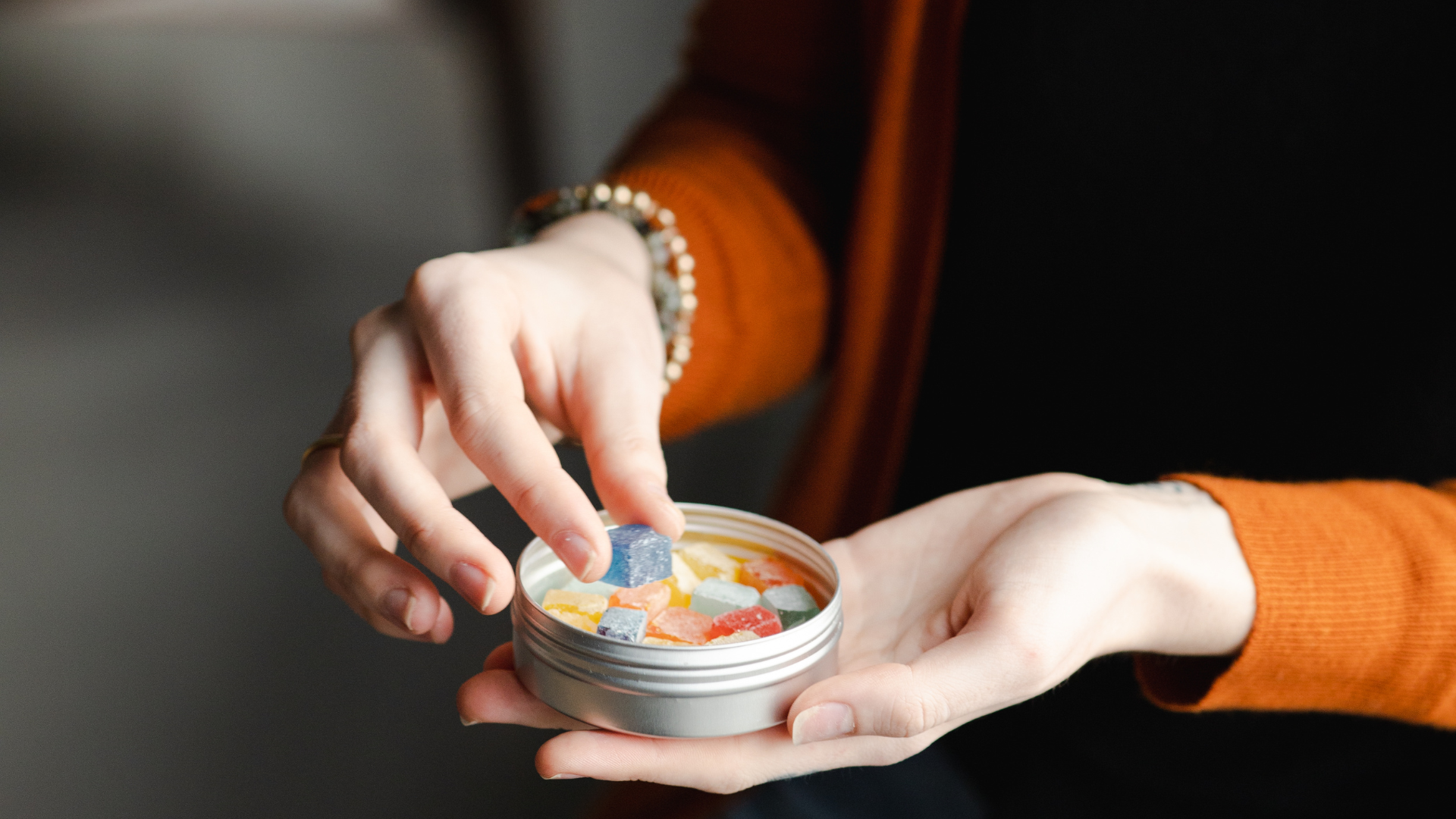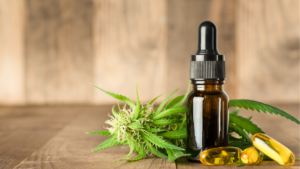If you’ve browsed a CBD store or hemp dispensary lately, you may have come across terms like “Delta-8 THC,” “Delta-9 THC,” and “hemp-derived THC.” They may sound similar, but the differences between them can have a big impact on how they affect your body – and your legal standing depending on where you live.
At Realm of Caring, we are here to help you make informed, empowered decisions. Whether you are exploring plant-based therapies for the first time or are a seasoned cannabis consumer, understanding how different forms of THC behave in the body is essential.
What is THC, Anyway?
THC, short for tetrahydrocannabinol, is the primary intoxicating compound found in cannabis. It binds to CB1 receptors in the brain and nervous system, which can influence mood, memory, pain perception, appetite, and more.
When most people refer to THC, they’re talking about Delta-9 THC, the compound responsible for the classic “high” associated with cannabis. But due to evolving laws and consumer demand, other forms of THC have emerged in the market, including Delta-8 THC and hemp-derived Delta-9 THC.
Delta-9 THC: The Classic Compound
Delta-9 THC is the most researched and abundant form of THC found naturally in the cannabis plant. It’s well known for its intoxicating effects at moderate to high doses, and it has also been studied for potential medicinal and therapeutic uses including:
- Reducing nausea and vomiting (especially during chemotherapy)
- Stimulating appetite
- Supporting pain relief
- Easing muscle spasticity (especially in conditions like MS)
Because Delta-9 THC is federally classified as a Schedule I controlled substance, it is still highly regulated. However, hemp-derived Delta-9 THC (less than 0.3% by dry weight, per the 2018 Farm Bill) is allowed under federal law, a nuance that some companies use to sell THC-containing edibles, vapes, and tinctures nationwide.
Consumer Tip: While hemp-derived Delta-9 is legal in many states, it still produces the same psychoactive effects. Always start with a low dose and understand how your body reacts.
Delta-8 THC: A Close Cousin, But Not the Same
Delta-8 THC is a cannabinoid that occurs in very small amounts naturally in hemp and cannabis. To produce Delta-8 products at scale, manufacturers typically convert CBD into Delta-8 through a chemical process called isomerization, which alters the molecular structure.
Delta-8 and Delta-9 THC are nearly identical, sharing the same molecular formula (C₂₁H₃₀O₂), (which also happens to be the same molecular formula as cannabinoids cannabichromene (CBC) and cannabidiol (CBD), and the hormone progesterone) and both bind to CB1 receptors in the brain. But Delta-8 is generally considered potentially less potent and less intoxicating, which has made it popular among people seeking relief without a strong high.
Some promising studies, including research in pediatric cancer patients, show Delta-8 may help reduce nausea with fewer side effects than Delta-9 THC. In mouse models, it has also shown the potential to increase appetite and cognitive performance without as much psychoactivity.
However, most Delta-8 THC on the market is synthetically derived and unregulated. This means:
- There is limited oversight on how it’s produced
- Lab testing is inconsistent or absent
- Products may contain contaminants or significantly more THC than advertised
Many states have taken action to ban or restrict Delta-8 sales due to concerns about consumer safety, especially when products skirt regulations intended for marijuana-derived THC.
Consumer Tip: Be cautious with Delta-8. Look for third-party lab tests and avoid products that don’t disclose how the cannabinoid was derived or what’s in it.
Hemp-Derived THC: Legal Loopholes and Consumer Confusion
The term “hemp-derived THC” typically refers to cannabinoids like Delta-8 or Delta-9 that are sourced from hemp (cannabis plants with less than 0.3% Delta-9 THC by dry weight). Because of this federal definition, manufacturers are able to infuse hemp-derived cannabinoids into edibles and oils, sometimes containing enough THC to produce intoxicating effects, even if technically compliant with the letter of the law.
While this may seem like a win for accessibility, it creates a confusing consumer landscape. Products may appear to be CBD-only or “non-psychoactive” based on hemp labeling, but in reality they can:
- Cause a THC high
- Show up on a drug test
- Contain synthetic or unregulated compounds
As a result, consumers seeking non-intoxicating relief may unknowingly purchase products that affect their cognition, coordination, or overall health.
Consumer Tip: Read labels and seek transparency with a company prior to purchasing.
Awareness is Everything
All forms of THC – whether Delta-9, Delta-8, or hemp-derived – have psychoactive potential at certain doses. The key difference lies in how they’re made, how much we know about their safety, and how they’re regulated.
At Realm of Caring, we advocate for transparency, research, and consumer safety. Here’s what we recommend:
- Start low and go slow, especially with new or unfamiliar products
- Ask for Certificates of Analysis (COAs) from third-party labs
- Choose products from trusted sources that explain their extraction process
- Stay up-to-date on your state laws
And most importantly, don’t be afraid to ask questions. Our care team is here to help you navigate the world of cannabis with confidence.





